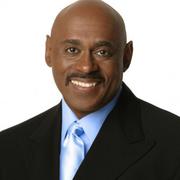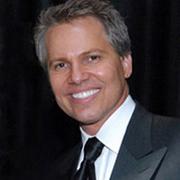Paul Oakenfold
| 基本信息 | |||
|---|---|---|---|
| 姓名 | Paul Oakenfold | 别名 | 暂无 |
| 国籍 | 英国 | 出生地 | |
| 语言 | 性别 | 男 | |
| 生日 | 星座 | ||
| 身高 | 体重 | ||
曾被DJ杂志选为世界第一的DJ Paul Oakenfold,对于电子音乐的发展扮演着举足轻重的角色;成长与North London的他,自小已经非常喜欢音乐,更希望自己的终身职业是关于音乐。
Paul Oakenfold is the DJ, remixer, and producer who did more than anyone else to break house music in Britain during the late 80s. During 1987-1988, Oakenfold hosted a series of crucial club nights that introduced thousands of Brits to house music. Just a few years later, he helped push the new dance crossover into the charts by masterminding hit productions by Happy Mondays (among others) and forming one of the most successful dance labels of the 1990s, Perfecto Records. Even well over a decade after his emergence, Oakenfold remained, quite simply, dance musics most popular DJ.
Born in London in 1963, Oakenfold began mixing at the age of 16, and hooked up with friend Trevor Fung to play soul and rare groove at a basement bar in Covent Garden. He also spent some time in New York during the late 70s, working for Arista Records and soaking up the disco scene through Larry Levans genre-spanning sets at the Paradise Garage. Back in England by the early 80s, Oakenfold worked as a club promoter and British agent for the Beastie Boys and Run-D.M.C. He continued DJing as well, and eventually ended up at the Project in 1985-1986, one of the first venues for house music in England. With Fung and another friend named Ian St. Paul, Oakenfold was introduced to the exploding club scene on the vacation island of Ibiza (near the coast of Spain) during 1987 and imported the crucial mix of house, soul, Italian disco, and alternative music later dubbed the Balearic style.
During 1988-1989, house music and the Balearic style gestated at several Oakenfold-run club nights (Future at the Sound Shaft, then Spectrum and Land of Oz at Heaven) before emerging above terra firma as a distinctly British entity. Oakenfold and Steve Osborne had been working with new dance converts Happy Mondays, and their production for the 1989 Happy Mondays single (W.F.L.) Wrote for Luck was voted Dance Record of the Year by the NME. The duos production for the Happy Mondays breakout full-length, Pills n Thrills and Bellyaches, placed them squarely in the vaunted territory of other new dance producers like Andrew Weatherall (who achieved similar success with Primal Screams Screamadelica from the same year). Soon, major labels were lining up to have Oakenfold and Osborne remix their biggest pop stars, including U2, Simply Red, New Order, the Cure, Massive Attack, M People, Arrested Development, the Shamen, the Stone Roses, and even Snoop Doggy Dogg (some as Perfecto, the combination remix service and RCA-connected record label founded by the pair in 1990). The Oakenfold/Osborne team were nominated by BPI as Best Producers from 1990 to 1993.
By the mid-90s, dance music had reached the mainstream of British radio and culture, with Oakenfold at the front of a new wave of globe-trotting DJs; he toured with U2 and supported live gigs by INXS, the Orb, Simply Red, Boy George, and Primal Scream. On Britains ever-growing club circuit, he inaugurated the London superclub Ministry of Sound early in the 1990s and became a resident at Britains other superclub, Liverpools Cream, instead of taking big money for independent gigs. He also cut down his remix schedule to less than five per year, concentrating instead on the release of half-a-dozen mix albums, including several volumes in the Journeys by DJ series. Oakenfold left Cream in 1999, after which Virgin commemorated the occasion with the release of Resident: Two Years of Oakenfold at Cream. Perfecto Presents Another World arrived the following year. A monumental U.S. tour and the fresh Voyage into Trance appeared in early 2000, as did Swordfish: The Album, a soundtrack Oakenfold constructed for the sci-fi film of the same name. In 2002, Bunkka became his first album of new productions. Mix albums like Creamfields (2004) and Perfecto Presents...The Club (2005) appeared before his second production effort, A Lively Mind, landed in 2006.
Paul Oakenfold is the DJ, remixer, and producer who did more than anyone else to break house music in Britain during the late 80s. During 1987-1988, Oakenfold hosted a series of crucial club nights that introduced thousands of Brits to house music. Just a few years later, he helped push the new dance crossover into the charts by masterminding hit productions by Happy Mondays (among others) and forming one of the most successful dance labels of the 1990s, Perfecto Records. Even well over a decade after his emergence, Oakenfold remained, quite simply, dance musics most popular DJ.
Born in London in 1963, Oakenfold began mixing at the age of 16, and hooked up with friend Trevor Fung to play soul and rare groove at a basement bar in Covent Garden. He also spent some time in New York during the late 70s, working for Arista Records and soaking up the disco scene through Larry Levans genre-spanning sets at the Paradise Garage. Back in England by the early 80s, Oakenfold worked as a club promoter and British agent for the Beastie Boys and Run-D.M.C. He continued DJing as well, and eventually ended up at the Project in 1985-1986, one of the first venues for house music in England. With Fung and another friend named Ian St. Paul, Oakenfold was introduced to the exploding club scene on the vacation island of Ibiza (near the coast of Spain) during 1987 and imported the crucial mix of house, soul, Italian disco, and alternative music later dubbed the Balearic style.
During 1988-1989, house music and the Balearic style gestated at several Oakenfold-run club nights (Future at the Sound Shaft, then Spectrum and Land of Oz at Heaven) before emerging above terra firma as a distinctly British entity. Oakenfold and Steve Osborne had been working with new dance converts Happy Mondays, and their production for the 1989 Happy Mondays single (W.F.L.) Wrote for Luck was voted Dance Record of the Year by the NME. The duos production for the Happy Mondays breakout full-length, Pills n Thrills and Bellyaches, placed them squarely in the vaunted territory of other new dance producers like Andrew Weatherall (who achieved similar success with Primal Screams Screamadelica from the same year). Soon, major labels were lining up to have Oakenfold and Osborne remix their biggest pop stars, including U2, Simply Red, New Order, the Cure, Massive Attack, M People, Arrested Development, the Shamen, the Stone Roses, and even Snoop Doggy Dogg (some as Perfecto, the combination remix service and RCA-connected record label founded by the pair in 1990). The Oakenfold/Osborne team were nominated by BPI as Best Producers from 1990 to 1993.
By the mid-90s, dance music had reached the mainstream of British radio and culture, with Oakenfold at the front of a new wave of globe-trotting DJs; he toured with U2 and supported live gigs by INXS, the Orb, Simply Red, Boy George, and Primal Scream. On Britains ever-growing club circuit, he inaugurated the London superclub Ministry of Sound early in the 1990s and became a resident at Britains other superclub, Liverpools Cream, instead of taking big money for independent gigs. He also cut down his remix schedule to less than five per year, concentrating instead on the release of half-a-dozen mix albums, including several volumes in the Journeys by DJ series. Oakenfold left Cream in 1999, after which Virgin commemorated the occasion with the release of Resident: Two Years of Oakenfold at Cream. Perfecto Presents Another World arrived the following year. A monumental U.S. tour and the fresh Voyage into Trance appeared in early 2000, as did Swordfish: The Album, a soundtrack Oakenfold constructed for the sci-fi film of the same name. In 2002, Bunkka became his first album of new productions. Mix albums like Creamfields (2004) and Perfecto Presents...The Club (2005) appeared before his second production effort, A Lively Mind, landed in 2006.
 加载评论内容,请稍等......
加载评论内容,请稍等......














